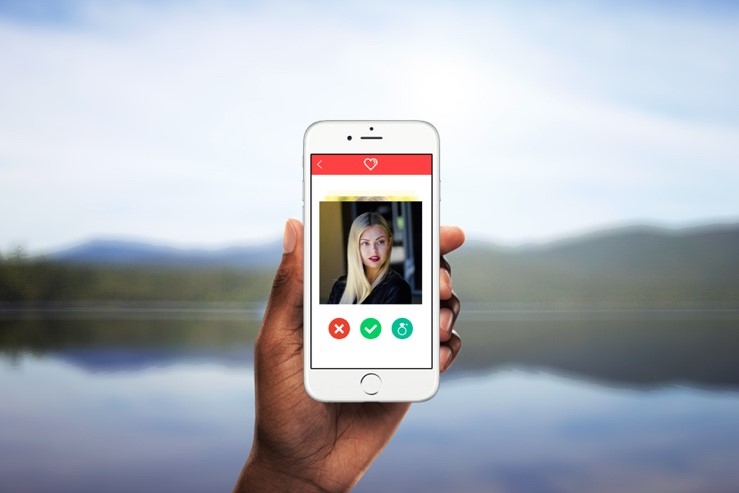This post is also available in Dutch .
Limitless dates within thumb’s reach: Mobile apps are the new place to meet potential partners. Recent psychological research offers us a glimpse into the minds of Tinder users.
Sunshine, bumblebees, and blossoms—spring has sprung! Hearts will flutter in the balmy breeze as legions of single citizens swipe left and right on the world’s most popular dating app: Tinder. At approximately 50 million users, Tinder is currently the top dating app and the Netherlands is ranked eighth in the world for the most number of users. Some contend that the popular app simply allows a connection between people who otherwise wouldn’t meet, while others claim that it has thoroughly ruined romance. Has Tinder contributed to the devolvement of dating? Are most users looking for Netflix-and-chill or something more? Now that Tinder has been available for just over five years, its effects on the dating perspectives of the current generation of singles are starting to take shape.
13 Reasons Why
Elisabeth Timmerman (Erasmus University Rotterdam) and Elien de Caluwé (Tilburg University) carried out four independent studies of over 3000 Tinder users, in which they assessed motives for and experiences with the app.
13) To be cool; everyone else is doing it
12) To forget ex
11) For casual sex
10) For travel tips
9) From peer pressure
8) To meet Holebi (loosely translates to “LGBTQ” in English)
7) To improve flirtation skills
6) As a distraction
5) As an ego boost
4) For love
3) For socialization
2) For curiosity
1) For amusement
Therefore, users are not necessarily always looking for a relationship (e.g., sometimes they just want to know where to get the best pizza in town). Nevertheless, with love as the fourth highest Tinder motivator, it seems that many users are surprisingly still looking for an actual, intimate connection. These results align with one of Tinder’s own surveys from last year, which found that app users have a greater desire to commit to a relationship than non-users. Furthermore, Timmerman and de Caluwé’s results correspond with a study from the pre-Tinder era, which found that couples who meet online are no more likely to break up than couples who meet offline, and couples who meet online transition to marriage more quickly than those who meet offline.
So… What About Motive #11?
Has the advent of Tinder contributed to today’s hookup culture? According to Timmerman’s research, Tinder use has not resulted in app members having more sex. Of course, self-reported answers to surveys may not always be the truth, and actual success rates may vary —some users won’t even admit to having an account.
Though more research is still in the works, it’s safe to say that Tinder hasn’t necessarily ruined romance; users are relatively still open to the prospect of love. Perhaps the use(s) of Tinder is a sign of changing times and the departure from traditional perspectives of courting. As the dating game evolves with technology, a more open-minded, modern generation of singles swipes into the world. We are only beginning to untangle how dating apps have impacted the ways that people connect and the subsequent implications for societal expectations of relationships and intimacy.
Written by Christienne Gonzales Damatac
Edited by Annelies van Nuland
Translated by Jill Naaijen
